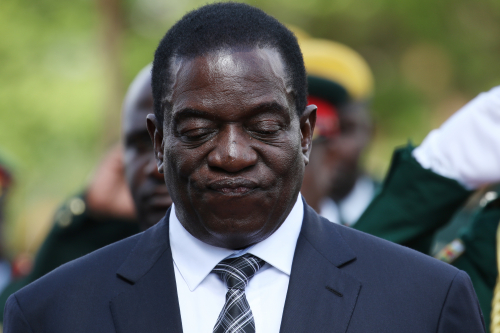
ZIMBABWE is trapped between State collapse and State failure because President Emmerson Mnangagwa’s government has failed to provide basic amenities for its citizens, uphold civil liberties and arrest the economic freefall, analysts have said.
By Richard Muponde
For the past two decades, Zimbabwe has been experiencing economic turbulence characterised by high unemployment, inflation as well as the collapse of manufacturing sector.
The situation deteriorated under Mnangagwa, who snatched power in 2017 through a military coup.
Rising reports of gross human rights abuses under Mnangagwa further isolated the country and denied it the much-needed funding from international financial institutions to revive the collapsing industry.
Doctors and nurses have repeatedly been on strike demanding better salaries.
Teachers are currently on strike, after declaring incapacitation, a situation that has triggered chaos in schools that reopened from September 28 to November 3 on a staggered process.
But instead of attending to the plight of the teachers, government is plotting to dock their salaries.
- Chamisa under fire over US$120K donation
- Mavhunga puts DeMbare into Chibuku quarterfinals
- Pension funds bet on Cabora Bassa oilfields
- Councils defy govt fire tender directive
Keep Reading
In an interview yesterday, political analyst Alexander Rusero said the functionality and progress of a country was measured by certain indicators and more importantly, clear-cut separation of powers.
“Not in Zimbabwe, everything is just decomposing to the core, and if we were to have a happiness index, Zimbabwe would score between zero and one out of 10 in terms of being happy,” he said.
“Education is fast becoming dysfunctional, the health system has been down for almost a year and without health and education systems functioning properly, what else can a country have and point to in terms of functionality.”
Rusero said those indicators were realities that point to a State trapped between collapse and failure.
“Parliament is paralysed, the Judiciary is paralysed and only partially, the Executive is functional, however, devoid of public policy, strategy and vision. More importantly, the State has become bankrupt much to the threat even of its own existence,” he added.
Rusero’s sentiments were amplified by professor Austin Chakaodza, who said Zimbabwe was a failed State, claiming it had been subjected to arbitrary, oligarchic and undemocratic leadership.
“It’s clear that Zimbabwe is a failed State in that citizens are suffering from a wide range of problems,” he said.
“These include lack of employment opportunities, lack of income to obtain basic necessities including food, shelter, health and education services. Poverty is the order of the day in Zimbabwe.”
Chakaodza said other factors that showed that the country was a failed State included lack of democracy and good governance.
“When governance is democratic — that is infused with the principles of participation, rule of law, transparency and accountability, among others — it goes a long way towards improving the quality of life and the human development of all citizens,” he said.
“The current government has proved to be incapable of coming up with the institutions and processes identifiable with modern representative democracy. This incapability has obviously led to State failure.”
In most failed and collapsed States, he said, corruption and plunder of natural resources are rampant, a situation that has also characterised Mnangagwa’s government.











